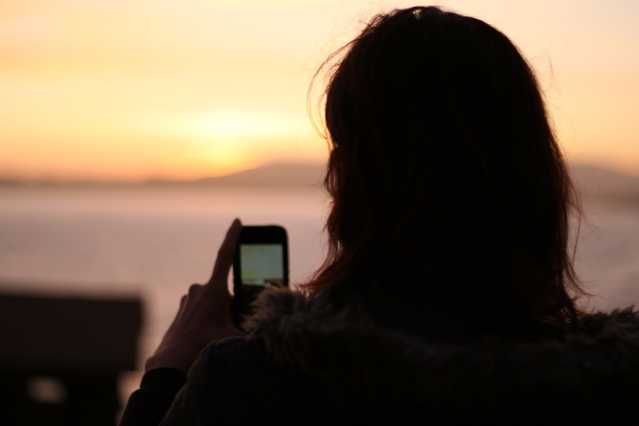
AUSTIN, Texas — A Republican lawmaker in Texas has proposed a bill that would make sending unwanted sexually explicit photos to another person a criminal offense in the state.
House Bill 2789, sponsored by Rep. Morgan Meyer, R-Dallas, was recently heard by the House Committee on Criminal Jurisprudence, and is currently pending in committee.
The legislation states that “[a] person commits an offense if the person knowingly transmits by electronic means visual material that depicts any person engaging in sexual conduct or with the person’s intimate parts exposed.” Violations would be a Class C misdemeanor and punishable by up to $500 in fines.
“Sending a lewd photo to someone that has not requested it or someone you don’t know is no different than exposing yourself to a stranger in public or performing other lewd acts,” Meyer said in a statement. “This is becoming a bigger issue among our teenagers and young adults, and while it seems less egregious since done over text or email, we must establish that this is not acceptable by making it a punishable offense.”
The dating app Bumble is also behind the bill as Meyer reportedly communicated with the company in crafting the legislation.
“What is illegal in the real world must be illegal in the digital world, and this legislation is a first step in the right direction in adding that accountability,” founder Whitney Wolfe Herd said in a statement. “A considerable amount of our lifetime is spent online — especially young adults — yet the digital world has fallen short in protecting us there.”
Like Meyer, Leslie Timmons of Voice of Hope told local television station KLBK that the sending of inappropriate images is a growing problem among minors.
“It’s like a trophy to them, and they collect them in order to show them to friends later on,” she lamented. “Once you send that photo, it is no longer in your control, and will never really go away.”
According to local television station CBS Dallas-Fort Worth, studies show that 1 in 4 teenagers say they have received an explicit photograph, and 1 in 7 have sent such photographs to others.
Some Texans have expressed opposition to the legislation, opining that it could outlaw some images that have “legitimate purposes,” such as photographs for medical reasons or an image that is considered to be art.
“There’s no legitimate constitutional way to forbid this speech, even though it’s something that people shouldn’t engage in,” criminal defense attorney Mark Bennett told the Statesman. “If this gets passed, I don’t think it’s going to survive a constitutional challenge.”
The law would take effect on Sept. 1 if passed.
Psalm 119:9-11 states, “Wherewithal shall a young man cleanse his way? By taking heed thereto according to Thy word. With my whole heart have I sought Thee. O let me not wander from Thy commandments. Thy word have I hid in mine heart, that I might not sin against Thee.”
The late British preacher Charles Spurgeon also once exhorted, “Only the pure in heart shall see God. We are all subject to human passions, and this wretched flesh of ours is too easily fascinated by those who would pander to its indulgences. In seconds, the soul may be led into captivity. Watch unto prayer, especially in these evil days. Cry, ‘Lead us not into temptation,’ and if the prayer is sincere, you will also keep far from doubtful places.”
“Make a covenant with your eyes that you will not look upon that which pollutes, and stop your ears from hearing about it. Watch your lips lest they spread corruption when speaking of sin. I am not afraid that you will step directly into gross sin, but that you may take a very small step on the road that leads to it. Then, it will only be a matter of time.”
Become a Christian News Network Supporter...


